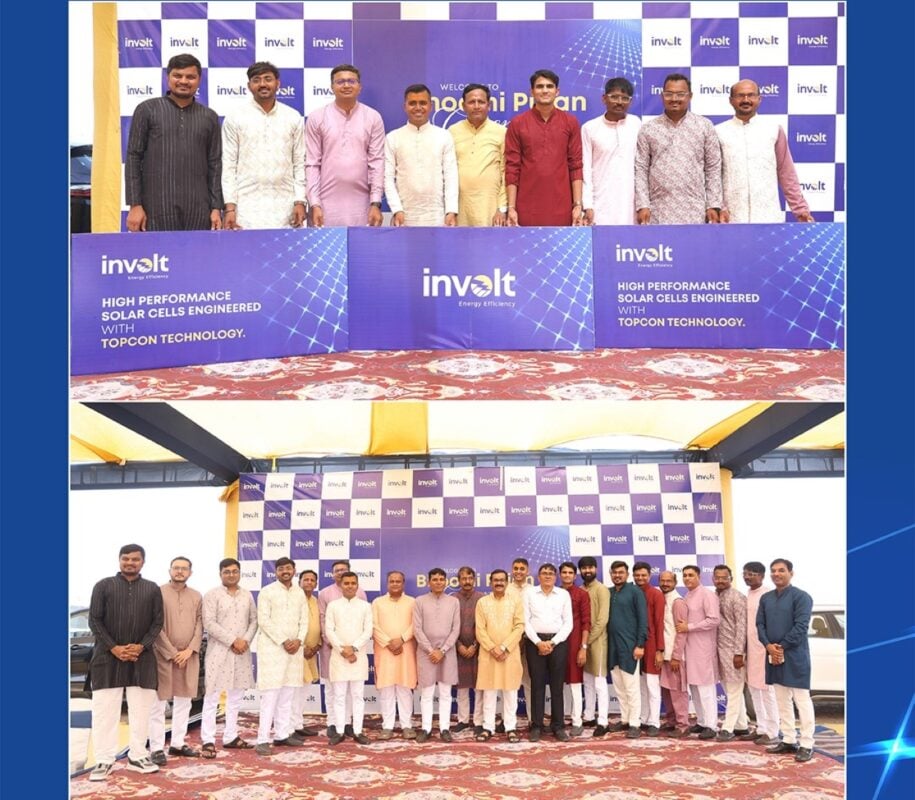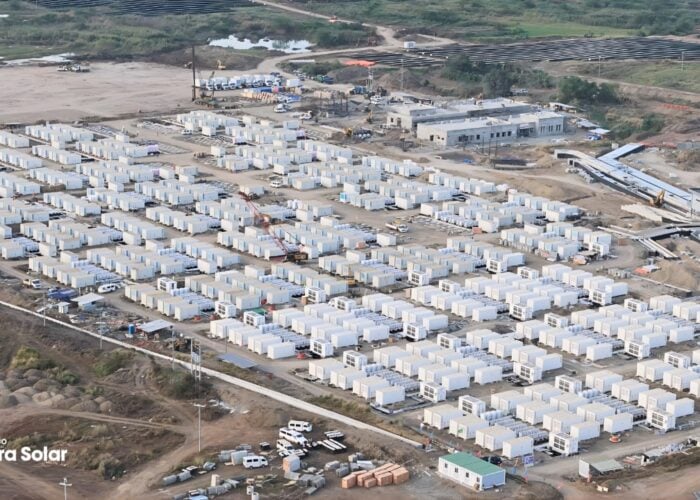
Solar manufacturer Involt Energy has broken ground on its first solar cell manufacturing plant in the western Indian state of Gujarat, with an initial annual nameplate capacity of 1.78GW.
According to the firm, this “fully automatic facility” uses AGV (Automated Guided Vehicle) technology and will use tunnel oxide passivated contact (TOPCon) technology.
Try Premium for just $1
- Full premium access for the first month at only $1
- Converts to an annual rate after 30 days unless cancelled
- Cancel anytime during the trial period
Premium Benefits
- Expert industry analysis and interviews
- Digital access to PV Tech Power journal
- Exclusive event discounts
Or get the full Premium subscription right away
Or continue reading this article for free
Speaking to PV Tech, Darshit Bhoraniya, managing director of Involt Energy, confirmed that the company plans to complete the plant within 14-18 months. Equipment procurement and installation are scheduled between late 2025 and early 2026, with trial production set to begin in the second quarter of 2026 and full commercial production expected by mid-2026.
Furthermore, he added that their strategy is to produce high-value components locally, beginning with advanced N-type TOPCon solar cells in Phase 1. In Phase 2, Involt Energy plans to integrate wafer manufacturing with a 3GW annual nameplate capacity to improve quality control, reduce costs, and strengthen supply chain resilience.
Bhoraniya further added that although India’s renewable energy sector is expanding quickly, it still depends heavily on imported solar cells and wafers. Bhoraniya added that in 2023, around 346GW of solar capacity was installed globally, and alongside that, Indian module manufacturers grew significantly to meet both domestic and export demand.
“Our strategy supports the Make in India initiative and strengthens the country’s energy security. The inclusion of solar cells in the Approved List of Models and Manufacturers (ALMM) from 2026 is one of the factors for this expansion, but our decision at Involt to move towards solar cells and wafers is part of a broader strategic vision,” he said.
During Phase 1, the company anticipates creating over 2,100 jobs locally, while in Phase 2 the total jobs will grow to 1,200 direct and over 3,000 indirect, supporting the local economy and skill development.
The project is not aided by the Indian government’s Production Linked Incentive (PLI) support yet, but Involt is hopeful about accessing government incentives down the line.






